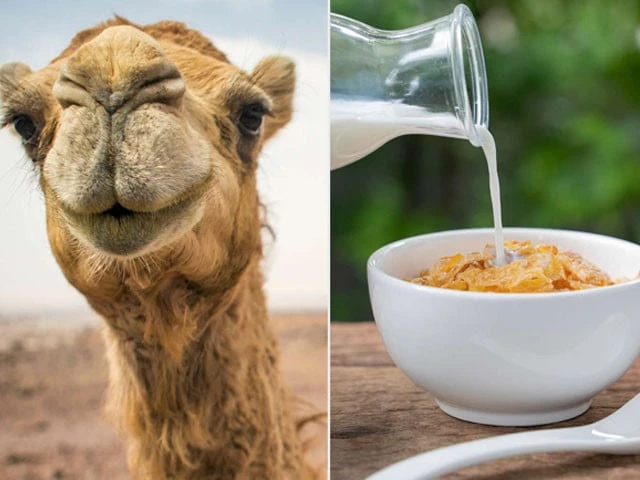Camel rearing can drive livestock growth, say officials
Milk rich in nutrients seen as remedy for diabetes

Camel milk, renowned for its rich nutrient profile and medicinal properties, has the potential to improve public health and significantly boost Pakistan's livestock exports, experts say.
Speaking on World Camel Day, observed annually on June 22, Dr Jamshaid Akhtar, Deputy Director of Livestock, emphasised the untapped potential of camels in Pakistan's semi-arid and arid regions.
He noted that camel milk contains insulin-like proteins, making it particularly beneficial for diabetic patients.
"Camel milk is a powerful natural remedy. It not only helps control diabetes but is increasingly in demand in the cosmetics industry due to its natural healing and moisturising properties," he said.
World Camel Day is celebrated on June 22 to raise awareness about the vital role camels play in desert ecosystems.
"This date was chosen symbolically as it marks the hottest and longest day of the year — a reminder of the camel's unmatched ability to survive extreme conditions," Dr Jamshaid explained.
"Camels are not just animals of the desert; they are lifelines in harsh climates."
Pakistan, he added, is home to some of the world's best camel breeds, which are well-adapted to local environmental conditions. He urged livestock farmers to explore camel rearing more seriously and consider the economic value of camel-based products such as milk, meat, and even bones.
"Increased production and value addition in camel products can help Pakistan earn substantial foreign exchange," he said.
"By promoting camel products both locally and internationally, we can carve out a unique identity for our country in the global livestock sector."
Dr Jamshaid also underscored the cultural and ecological significance of camels, which have historically served communities through transportation, food, and resilience against climatic adversity.
He called on local farmers to adopt scientific methods for efficient camel rearing, noting that modern practices could dramatically improve productivity.
"It's time we shift our perspective and recognise camels as a sustainable source of livelihood and a pillar of national economic growth," he concluded.




















COMMENTS
Comments are moderated and generally will be posted if they are on-topic and not abusive.
For more information, please see our Comments FAQ